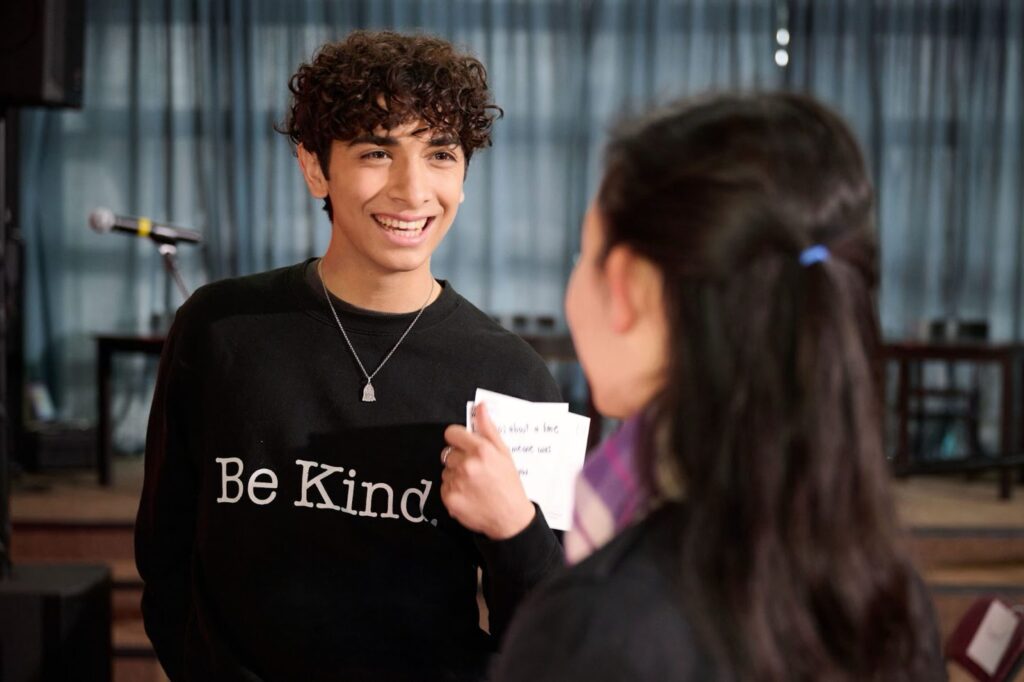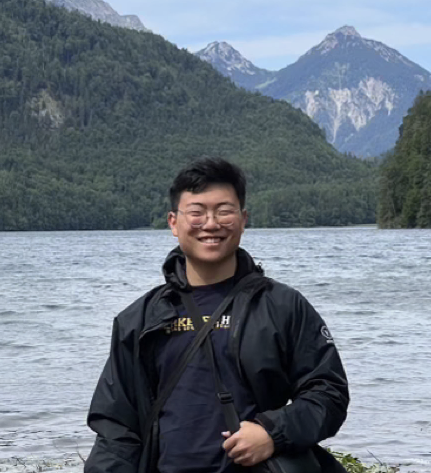Humans of Haas: Marissa Saretsky
Written by Emma Desilva.
Marissa Saretsky has spent the past decade promoting and advising on human rights and sustainability management for companies, governments, and multilateral organizations in the U.S and Europe. She has held positions on these topics at Article One, Gap Inc., and Ernst & Young. Saretsky received her Master’s degree in Sustainable Development from the Institut d’études politiques de Paris (Sciences Po), and her BA in International Relations and French from New York University. She currently teaches UGBA 192N.4: Negotiating Human Rights Solutions in Business and MBA 292C.1: Strategic and Sustainable Business Solutions.
- How did you get into the career path that you chose?
The story starts with me choosing a foreign language to learn in high school in Dallas, Texas. I was given the choice between Latin, Spanish, or French. I chose French, because I saw it as a way to look beyond Texas, and it allowed me to dream of moving to France or francophone Africa. At NYU, I ultimately decided to study international relations alongside French to firmly set me on an international trajectory.
It was during my time in New York that I started to study sustainability, specifically mineral resources and how they contribute to the onset of civil conflict. After I graduated, I completed an internship at the United Nations HQ before moving to France to complete my Master’s degree at the Institut d’études politiques de Paris (Sciences Po). There I studied sustainable development in detail and was exposed to how the private sector manages these environmental and social risks. I was intrigued by how companies could both cause or contribute to the problem, and at the same time use their significant influence and resources to solve some of the world’s most pressing sustainability issues. This experience confirmed my interest in working in the private sector and led me to join EY’s Climate Change and Sustainability Services department after I graduated. The rest is history!
- What is some advice you would give to students or to your past self?
Right now, you may have a specific idea of what you want to do after college or graduate school. As a result, when looking for a job, you might limit yourself regarding the opportunities you are willing to accept. So, my advice is to have a long term perspective. Imagine how potential opportunities, which may not be the precise thing you want to do, or in the ideal organization or location, can contribute to you getting where you ultimately want to go. If it is the kind of company you want to work for, but not the exact role, prove yourself within the company, and learn how to pivot internally into a different role. Ask for more responsibility or ask to work on projects that will eventually lead you to your next position. Be open-minded and strategic, and seize opportunities as they come.
- Why did you decide to start teaching? Why Berkeley Haas?
My colleague at Berkeley-Haas, Faris Natour, was launching the Human Rights and Business Initiative at UC Berkeley around the time I was leaving Gap Inc. He asked if I was interested in helping him build the initiative, and I saw it as an exciting way to integrate human rights and sustainability issues into the education of future business leaders. In those early days working on the initiative, I never thought I would teach and was not particularly interested in doing so. However, the more I engaged with the students, the more I felt energized and compelled to share what I was seeing in the field of corporate responsibility. Fast forward to today, and I am now in my second year of teaching. It has been an incredibly rewarding experience to interact with the passionate students at Haas! It has also been a healthy challenge to learn how to condense my professional experience into something that really speaks to the students and their interests.
- What is one of your most memorable moments from teaching?
During the Fall 2018 semester, I decided to forego part of my scheduled lecture content to discuss Brett Kavanaugh’s confirmation hearings to become a US Supreme Court justice. You may recall that the hearings garnered national attention when Christine Blasey Ford came forward to testify about Kavanaugh’s sexual misconduct. While not directly related to the topic of my undergraduate class (the responsibility of social media platforms companies vis-à-vis politically motivated disinformation and election integrity), it felt like an important moment to take the pulse on the health of the democratic process in play, discuss who holds power in this country, and to get a sense from the students on how they felt about the #metoo movement coming head to head with the political machine that is Washington.
We are living at a point in time during which each week, each day brings forth news that shocks the system. That is why I teach on politically motivated disinformation as a threat to democracy in the first place, and why I feel it is important to bring current events and real stories into the classroom.
- What’s one piece of advice you have for students who are interested in pursuing a career in the human rights and sustainability field?
It is a great time to join the field! There is a plethora of junior roles right now, as corporate responsibility teams continue to grow. For example, there are many analyst roles within companies or specialized consultancies to work on corporate sustainability and human rights reporting, policy development, and performance measurement. Be willing to work your way up the ranks, all the while remaining strategic about how you leapfrog from one position to another. Lastly, be hungry to learn more in detail about the specific social and environmental issues you may touch upon in your work, and prove your added value by becoming the “in-house expert” in those areas.


